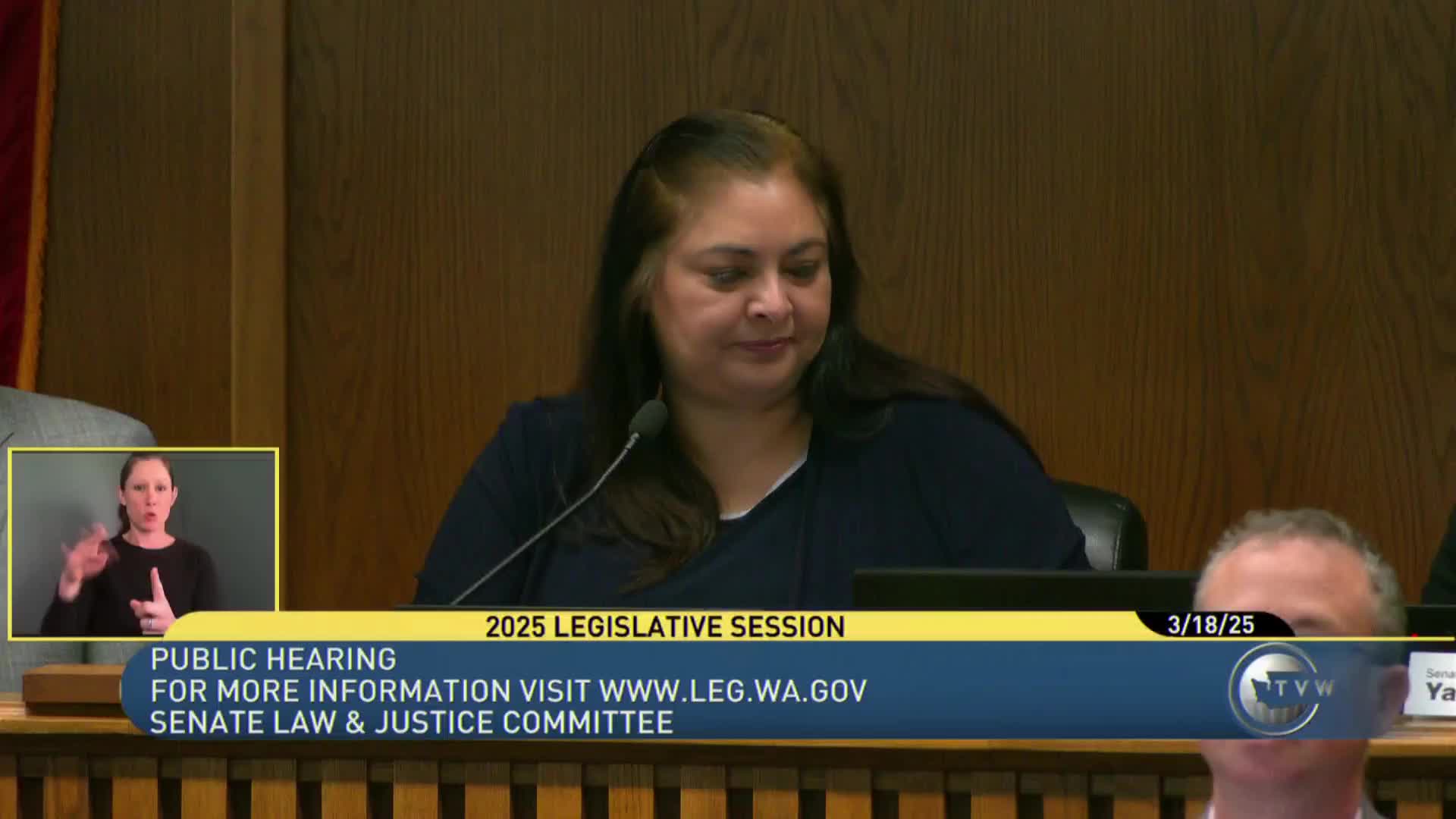Article not found
This article is no longer available. But don't worry—we've gathered other articles that discuss the same topic.
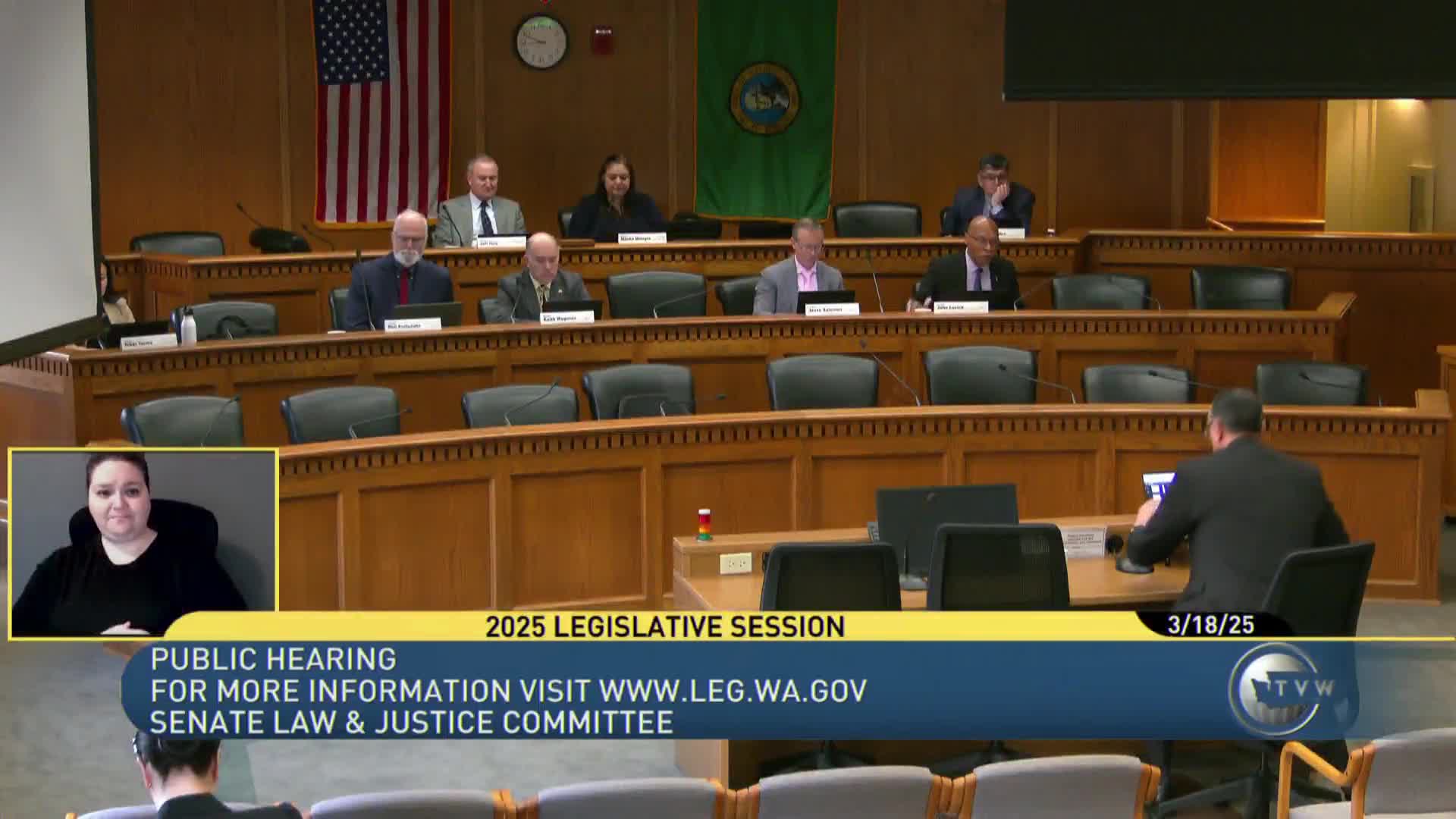
Heated testimony as committee considers rewritten parenting-plan law; advocates, judges and survivors clash over House amendments
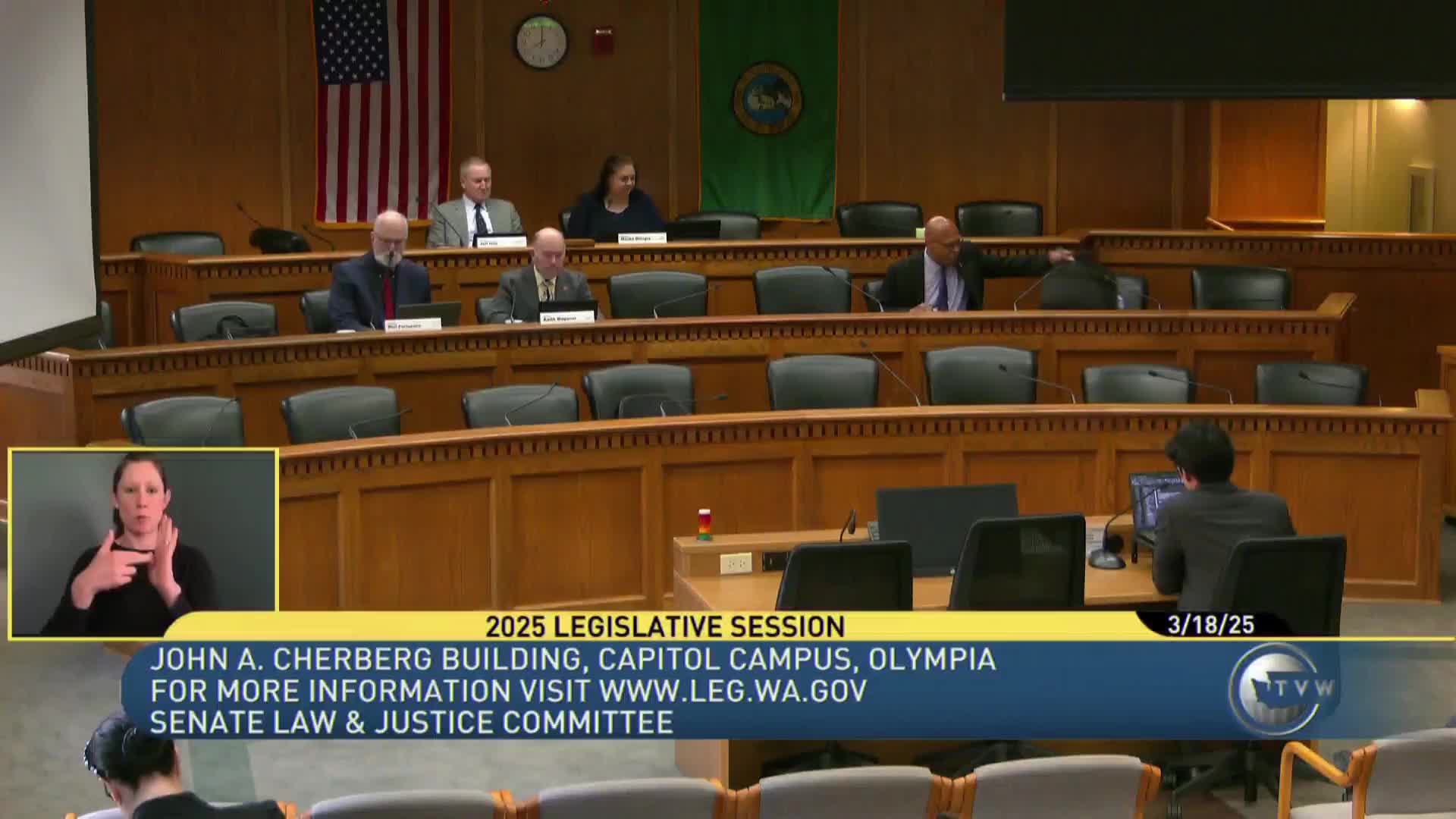
Committee hears bill to update court interpreter rules, AOC and court officials urge passage
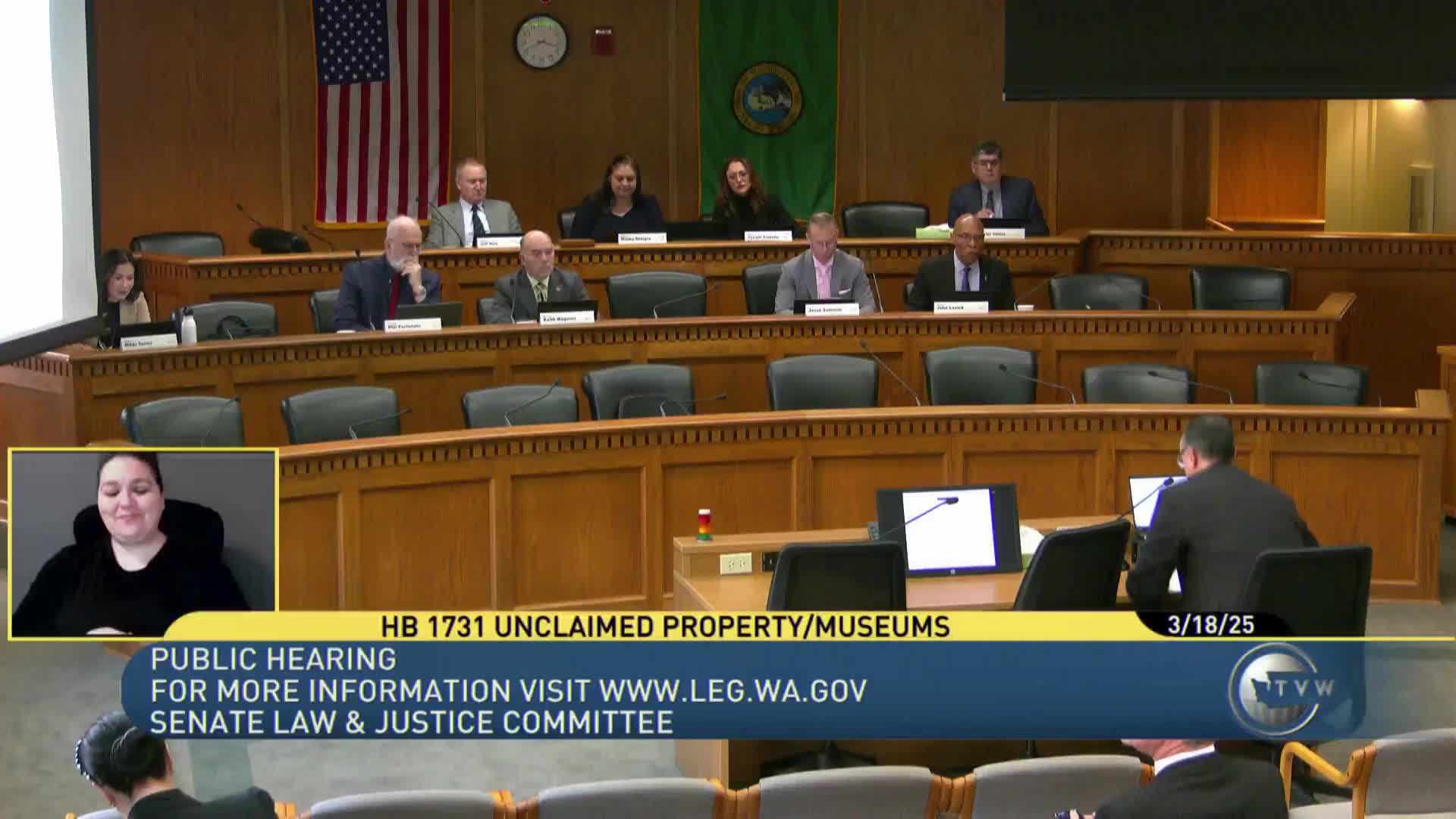
Bill would modernize notice rules for museums to claim loaned or abandoned items
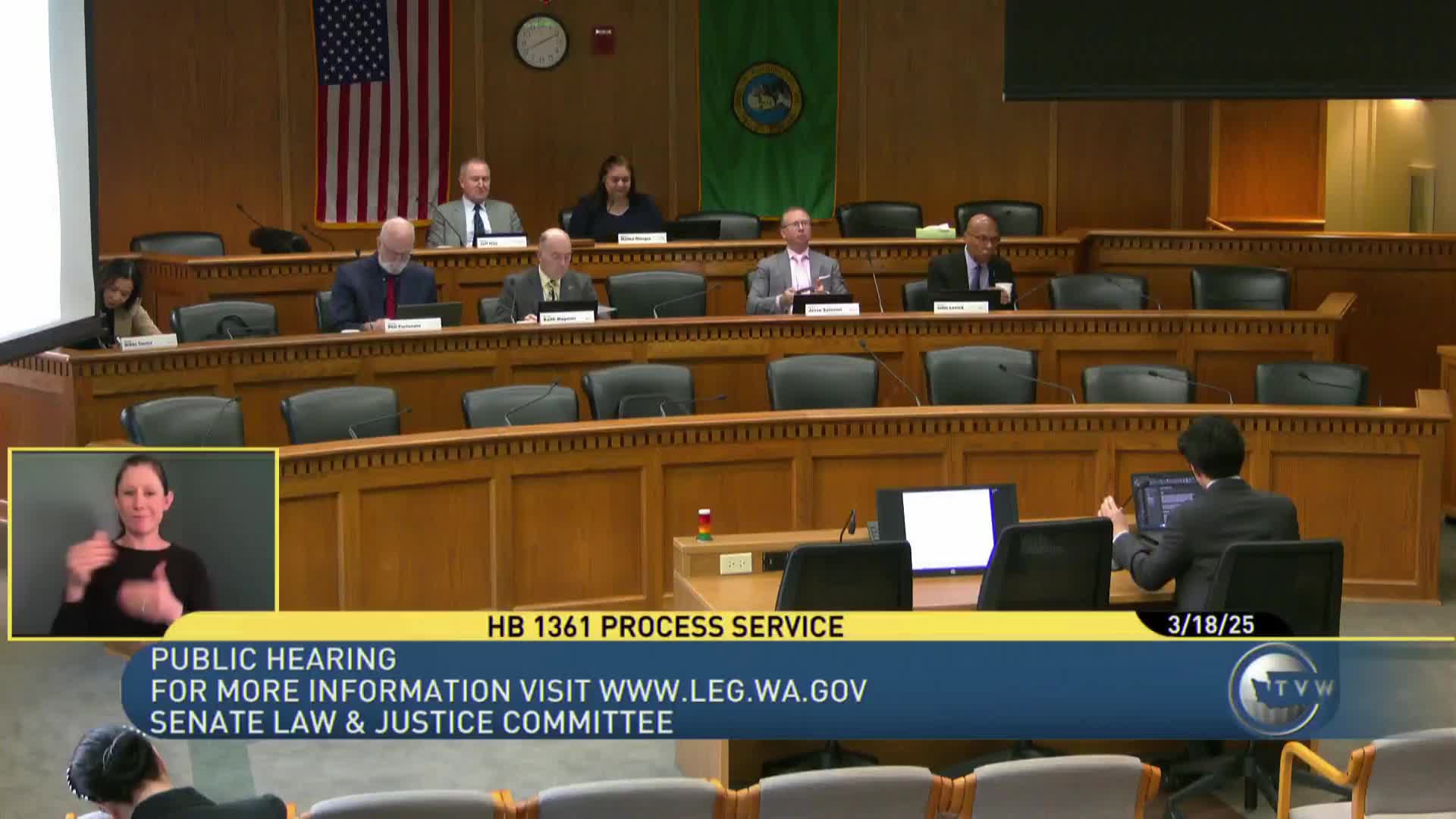
Panel backs statutory cleanup to align service-of-process rules with business code
